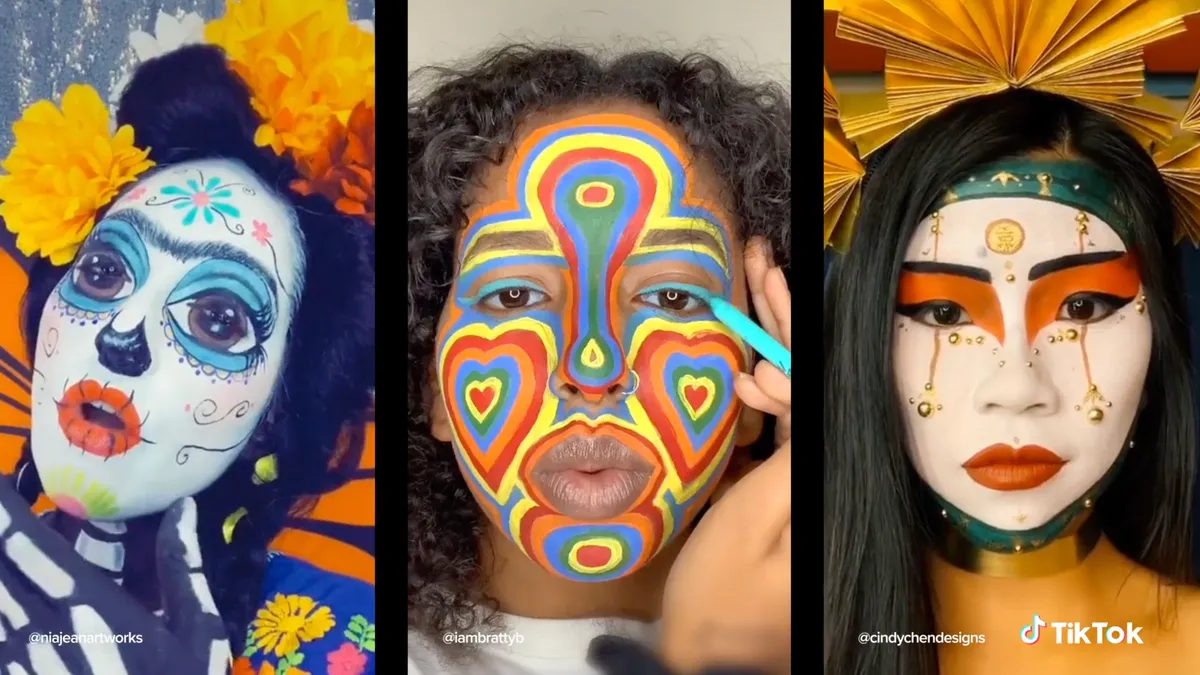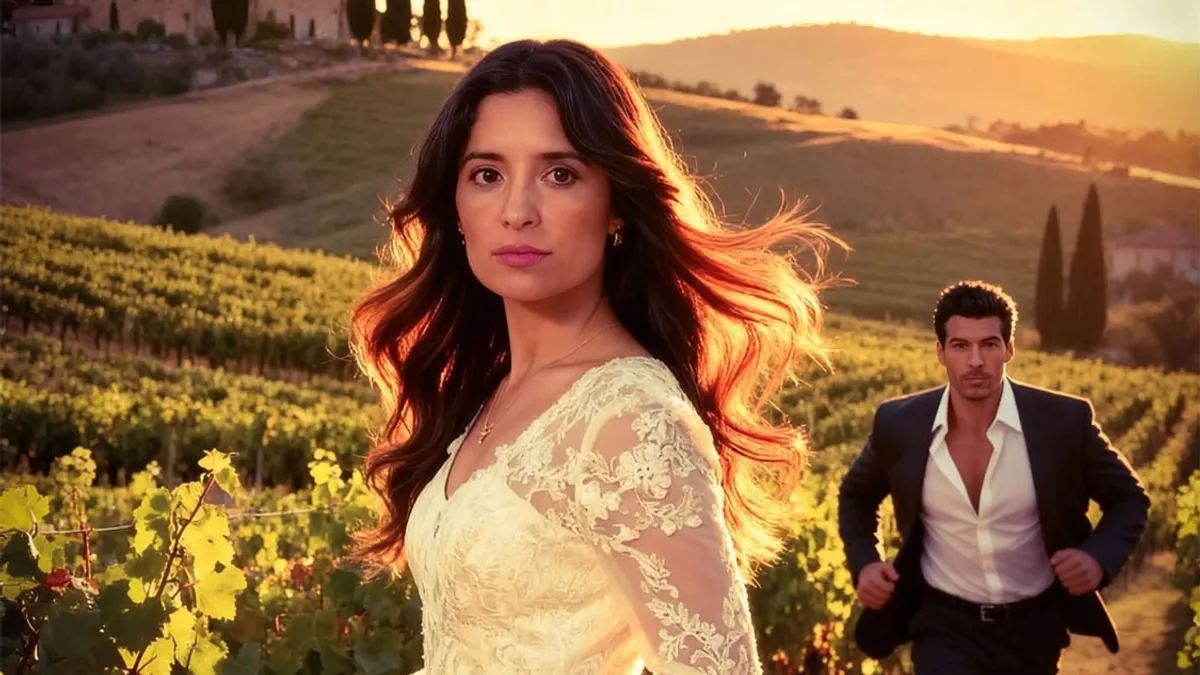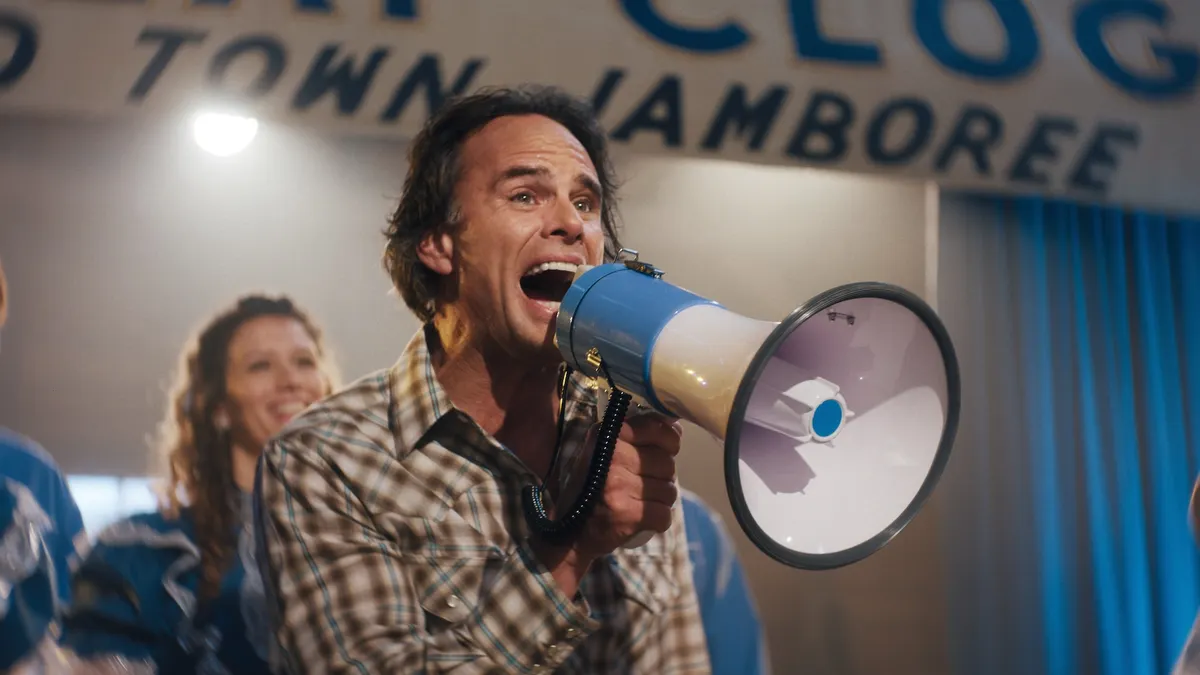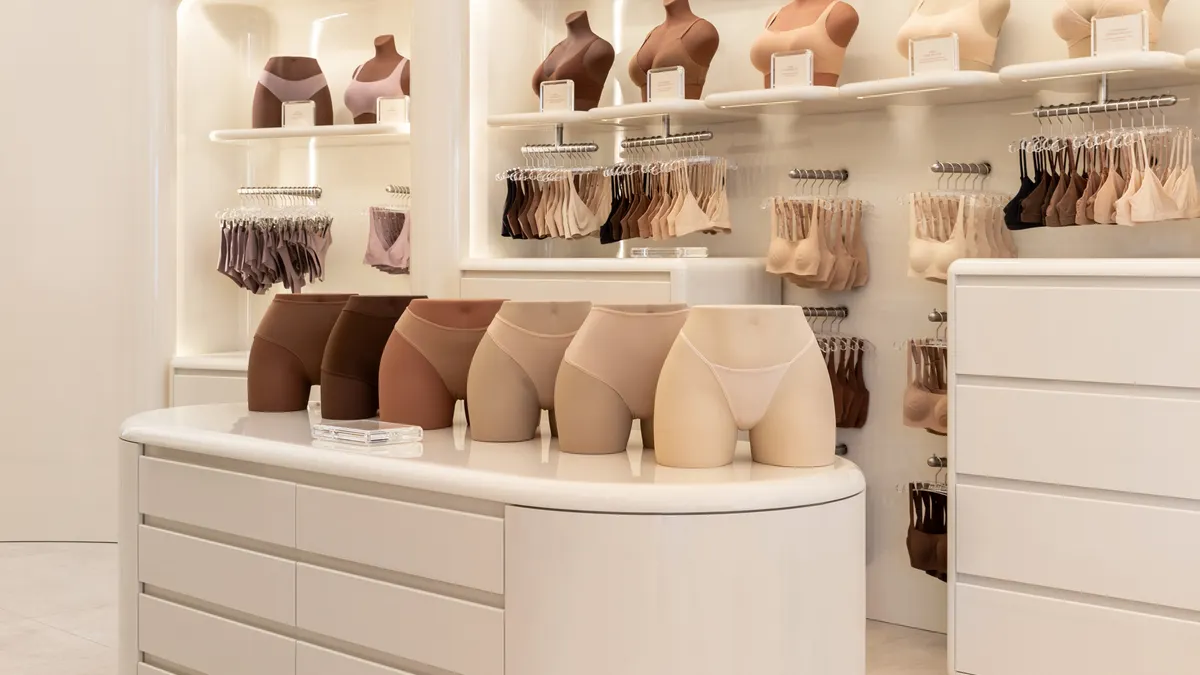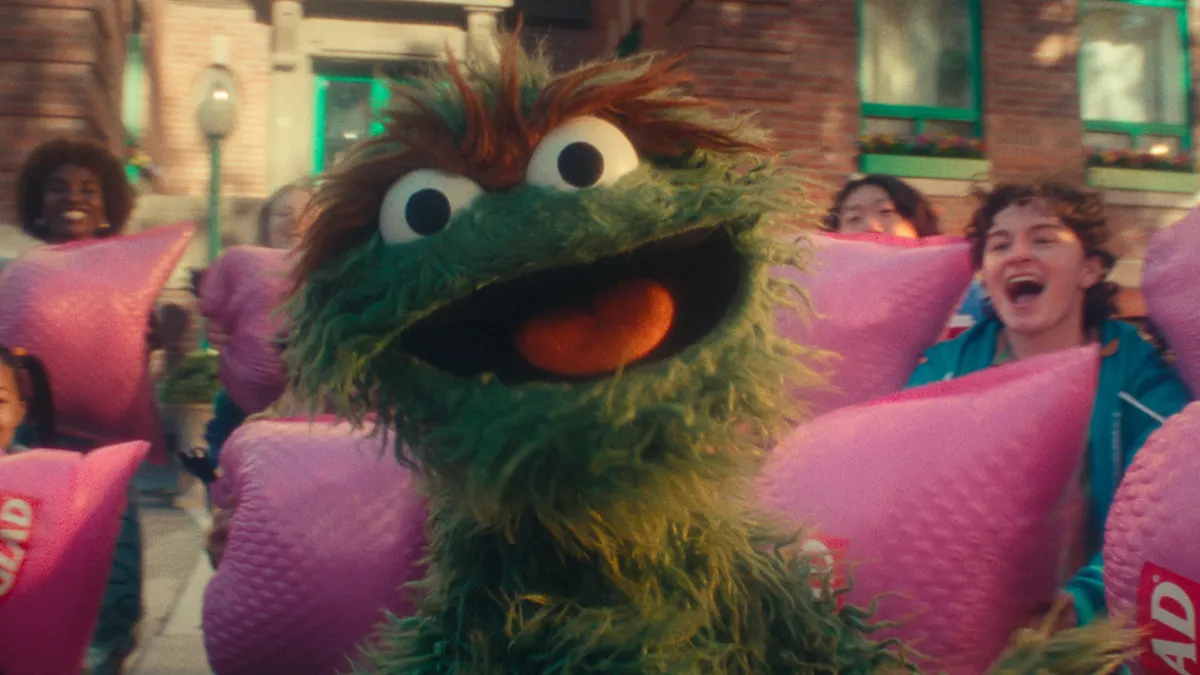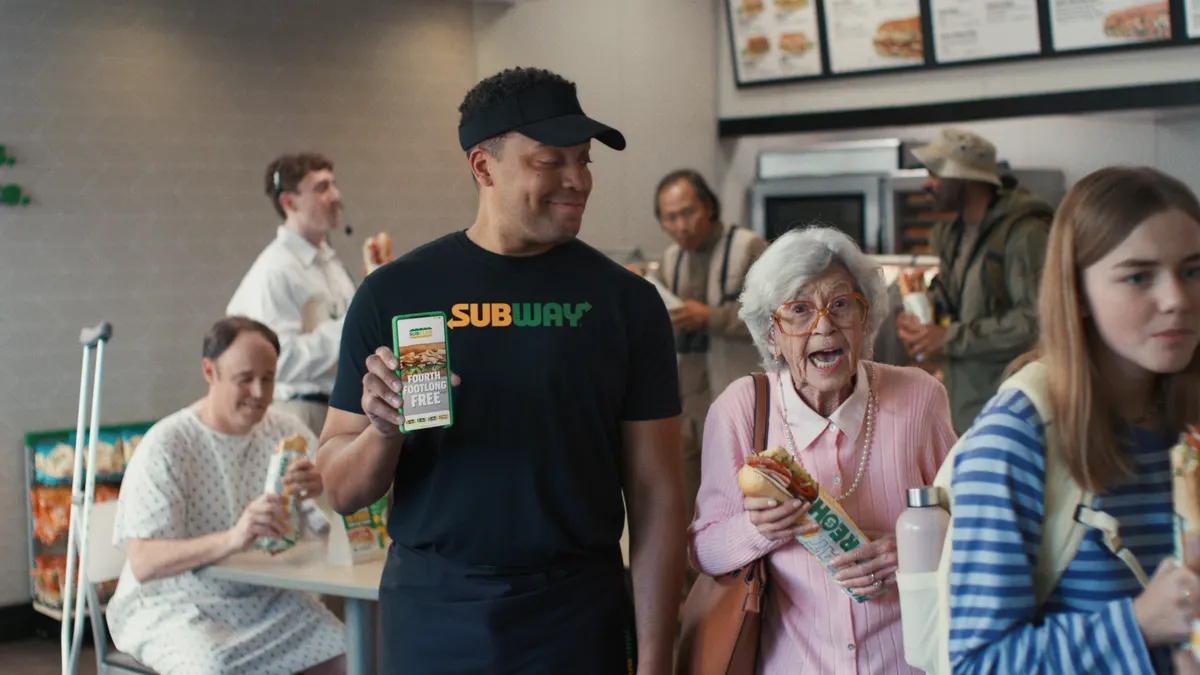TikTok, the video-sharing app owned by Chinese tech firm ByteDance, has for months been in a mad scramble to preserve its future in the U.S., but one would be hard-pressed to tell based on a sunny ad campaign that promotes its service to users. While many might question whether a messaging strategy focused on the app's carefree qualities could meaningfully alter the course TikTok eventually takes, some marketing experts think that it's a smart and potentially even necessary bid to course-correct in a period of intense volatility — at least for now.
"The vast majority of U.S. consumers, especially those past their twenties, have at best a fleeting knowledge of TikTok, let alone having visited the platform or posted on it," Dipanjan Chatterjee, vice president and principal analyst at Forrester, said over email. "Yet, most people seem to have an opinion about it, and that is because the brand, until now, has let the worst thing that could happen to a brand happen to TikTok: it let other people control the narrative."
The dissonance between TikTok's business, which faces a potential shutdown come Nov. 12 due to an executive order from President Donald Trump, and the feel-good image it increasingly flaunts is striking. TikTok has reached a tentative deal to partner with Oracle and Walmart on its U.S. operations, but even that is trapped in a whorl of complications. But rather than wield its considerable media and market power to call attention to a thorny political issue — or rally its estimated 100 million monthly active U.S. users to its cause — TikTok has played it relatively cool.
In August, just weeks after the White House announced intentions to ban transactions with TikTok, the company rolled out its first national marketing campaign, "It Starts on TikTok," that links the platform to "every facet of culture." Creative shows users producing videos typical to the app, including goofy dance challenges. Then, earlier this month, TikTok expanded its efforts to spotlight a massively viral video of a user, Nathan Apodaca (@420doggface208), skateboarding while sipping Ocean Spray and lip-syncing to Fleetwood Mac's "Dreams." The TV spot, which, like the broader campaign, was developed with the ad agency Known, is titled "Good Vibes," and looks to spread exactly that sentiment.
Several analysts interviewed for this story believed that using ads to amplify what's working on TikTok is a savvy strategy that could help the app grow to the point where it will be big enough to ward off a proliferating number of social media rivals and further batterings from the government. But the clock is still ticking on both fronts, and the coming weeks will be a test of whether assured brand-building means much in the wake of major existential threats.
"The platform is at a pivot point," Jack Mackinnon, a senior research analyst at Gartner who studies Gen Z and mulitcultural consumers, said. "Even ignoring the regulatory challenges, for this state of the growth of TikTok, [it] makes a lot of sense to me.
"I think it's kind of a two-parter," Mackinnon added. "Build support and build usership in case something happens, and also move [the app] to the next level of the mainstream."
Taking back control
TikTok's advertising plays have a habit of dropping around bad news. Just as "It Starts on TikTok" arrived in the weeks following Trump's first executive order against the platform in the summer, "Good Vibes" debuted the same day that the Justice Department appealed an injunction on a separate order, initially set to go into effect Sept. 20, that would have halted new downloads and software updates to the app.
In grappling with these continued challenges, TikTok has become a political "punching bag," per Chatterjee, and lost control over its own story. Bigger bets on consumer-facing marketing help TikTok realign focus on where it delivers value to users and marketers, and away from the rollercoaster demands of an openly adversarial White House.
"It is a terribly important first step, and the brand has done it very well through a series of spots showing the platform off as relevant, catchy, viral and connected to the pulse of the people," Chatterjee said. "'Good Vibes' is an especially good example because it epitomizes TikTok's ability to ignite moments that are so memorable that they get etched into our collective psyche."
TikTok's media executions also speak to a "go big and go loud" way of thinking that could drown out the noise surrounding the rest of its business, according to Laurence Newell, managing director of the consultancy Brand Finance Americas. "Good Vibes," for example, was a national TV spot that first appeared around the MLB playoffs. The broader "It Starts on TikTok" campaign has aired across networks including ABC, ESPN, NBC and TNT.
"The fact of the matter is that they're using very traditional advertising media to come out," Newell said. "There is this bravado to [them saying] we're going to do things differently, but really, at the end of the day, they're doing things very conventionally from an advertising point of view."
It's not hard to imagine a world where TikTok uses these stages to decry the Trump administration's aggression and rile its own base (the app has made public statements criticizing the ban, and is suing the government over the ban order). But that approach wouldn't align with what TikTok's predominantly young users care about, experts said, while "Good Vibes" — which centers on blissful user-generated content and its potential to go viral — does meet that audience need.
"There is relatively small worry and fear on the part of the TikTok users about the regulatory conundrum, partially because most of the users are 25 and under," Mackinnon said. "What's drawing them is not a sense of security anyway — it's that creative pull of moving where the culture moves and getting the feeling of a more direct, video-first window into people's lives."
Meaningful difference
"Good Vibes" also encapsulates what makes TikTok different from other social media sites. As rivals contend with the spread of misinformation, hate speech and more, TikTok has largely been free from such backlash, even as critics claim it poses a serious risk to national security and economic interests.
"There's a huge gap for a lot of consumers in terms of what they're getting when they go on social media versus what they're telling us they hope they get," Mackinnon said. "TikTok ... is kind of doubling down on creativity and positivity as a distraction and coming up with something that is apart from the doom-and-gloom that's assumed [of social media]."
Just this week, Facebook and Twitter came under fire for how they handled tamping down on a questionable New York Post scoop that contained purportedly bombshell information about Hunter Biden. Meanwhile, TikTok content has received mostly positive press for driving inspiring stories like Apodaca's. His original video has tens of millions of views and helped propel "Dreams" to the top of the streaming charts.
"'Good Vibes' is an especially good example because it epitomizes TikTok's ability to ignite moments that are so memorable that they get etched into our collective psyche."

Dipanjan Chatterjee
Vice president, principal analyst, Forrester
Several brands, including Ocean Spray, have partnered with the creator on their own marketing efforts, showing how TikTok can turn average users (Apodaca's day job is at an Idaho potato warehouse) into overnight celebrities. This was once a selling point of apps like Instagram and YouTube, but with time and influencer saturation, that appeal has faded for some users, while scrutiny in other areas has grown.
"While they're not kicking Facebook by any means, they are saying there is another way of doing social, and we're that way," Newell said of TikTok's marketing strategy.
And though usage of social media has generally spiked during the coronavirus pandemic, TikTok has done a better job at owning the feelgood narrative in a credible way. Marketing around organic stories like Apodaca's ultimately helps separate TikTok from a growing field of competitors, including the startup Triller or Reels, a lookalike feature Instagram rolled out in August. As it meets the demand for a reprieve from today's chaos, TikTok could enshrine itself as a stronger brand that users want to stick around.
"There probably is a race against time to make [the platform] grow as quickly as it possibly can, because there will come a point in which you can't turn it off," Newell said. "Regulatory issues or not, that's still the name of the game anyway."


